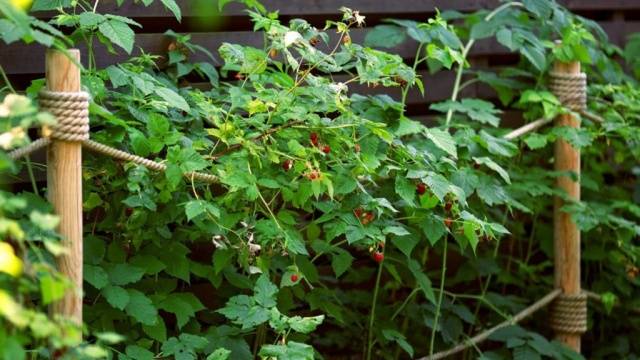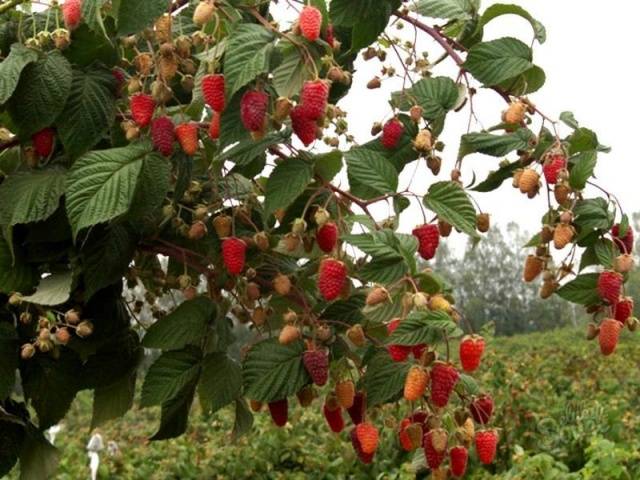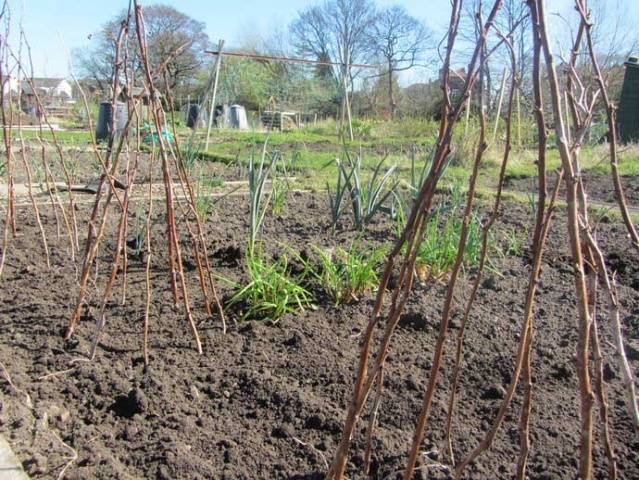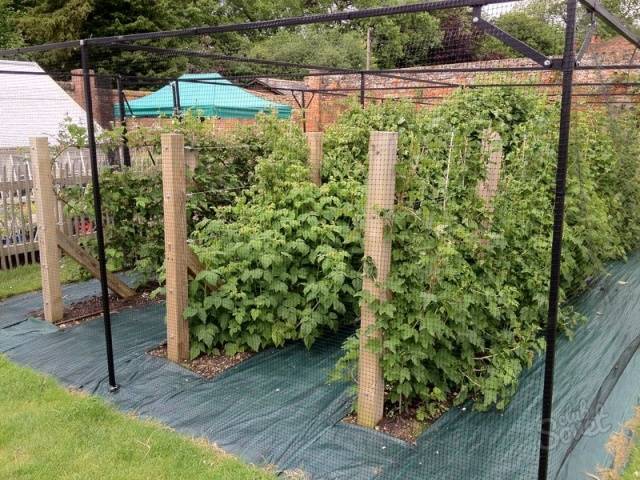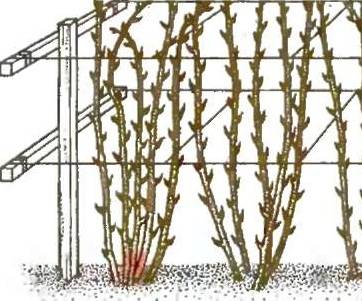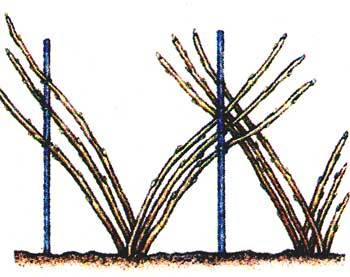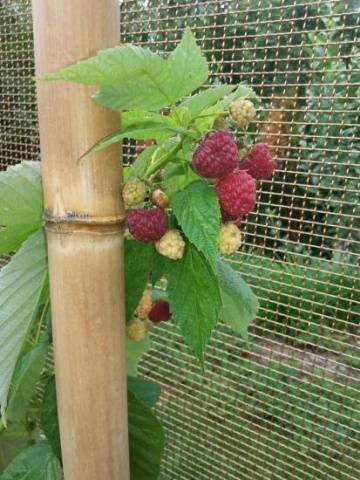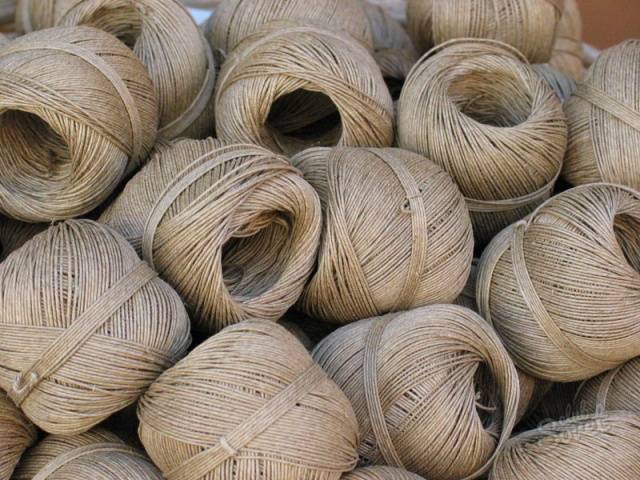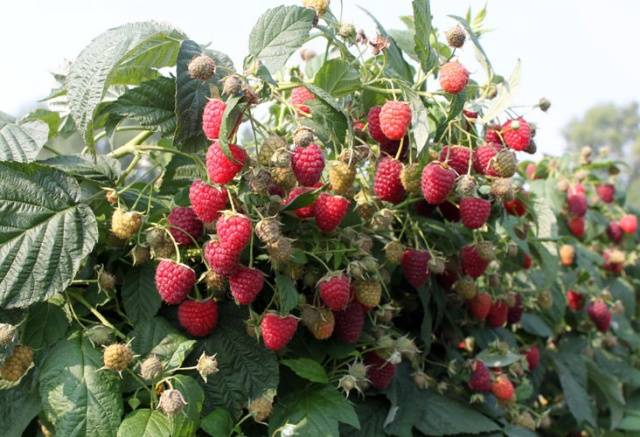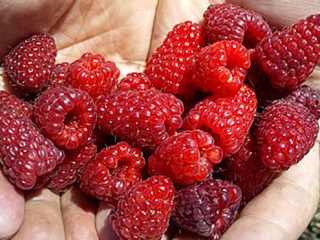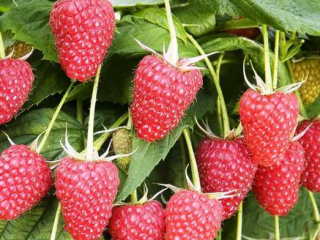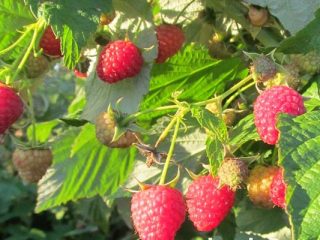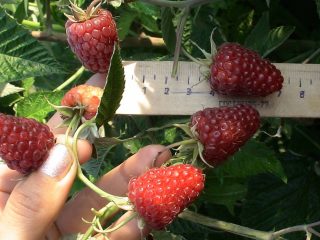Content
If a person has a garden plot, then he will always find a place for a raspberry tree. This should not be surprising, because raspberries are not only a delicious delicacy, but also a valuable product. They contain a large amount of vitamins and minerals. Berries are used to make jams, compotes. With the help of raspberries, you can normalize blood pressure, protect yourself from atherosclerosis.
You can get a rich harvest of berries only with proper plant care. Young gardeners are interested in how to tie up raspberries, how to do this work correctly, what methods exist. And yet, is it necessary to engage in a garter of shoots. Let's try to give detailed answers.
Why are raspberries tied up
Tying raspberries is one of the stages of plant care. Why is it needed? It turns out that not tied raspberries develop worse, the berries become smaller, lose their unique taste.
What are the advantages of an agrotechnical method of caring for raspberry plantings:
- Provides reliable protection of raspberries from diseases and pests.
- The shoots on which flower stalks are formed are in the middle of the bush and develop better.
- Twigs and side shoots of raspberries break less often even with strong winds and downpours, do not hang from the abundance of berries.
- Each twig receives enough heat and light so that ripening occurs evenly.
- Harvesting raspberries is more convenient, thorns do not interfere.
But there are more reasons why raspberries need a garter. The point is still in obtaining a bountiful harvest of berries of different colors and sizes. On tied up shoots, raspberry bushes are better illuminated, well ventilated.
Look at the photo, is it not a miracle raspberry!
The raspberry garter procedure is carried out in the spring after the shoots have been cut off. At this time, the stems should not yet have opened buds.
Variety of ways
The question of how to tie up raspberries correctly is of interest not only to beginners, but also to experienced gardeners. They hope to learn something new and try out garter techniques in their raspberries.
The most common are the following:
- stake method;
- fan-shaped way;
- trellis method.
Kolovaya method
This method is also called beam. Several stalks of raspberries are tied together (in a bundle) on a two-meter stake driven in the center. The tops of the heads are taken to the sides. Such a garter is the easiest to perform, but its effectiveness is not enough. Experienced gardeners do not tie up their plantings with a collet method due to disadvantages:
- Raspberry shoots are illuminated unevenly, especially in the center of the beam.
- The ovaries develop more slowly inside the garter.
- Shoots often break off, as they are tied only at the top.
- Poor ventilation leads to disease, pests are harder to spot.
Tapestry method
Tying raspberry lashes to trellises is not only the most common method. He's really effective.
What is a trellis? This is a type of structure that will require poles and wire for the device. The trellis is installed along the entire length of the landings. Consider the features of a raspberry garter, how to use it correctly.
There are different types of garters:
- on a single trellis;
- on a double trellis;
- the Scandinavian method.
Single trellis
This method of tying is convenient for small raspberries.High stakes are driven in along the edges of the beds and in between, wire is fixed to them at different heights: 1.65, 1.05, 0.75 m. Raspberry shoots are tied in three places separately. They are illuminated from all sides by the sun, the breeze walks freely between the leaves and berries.
Double trellis
For the manufacture of double trellis, they dig in high, up to two meters, pillars. The step between them is up to 4 meters. Two beams are fixed across the pillars. Each is half a meter long and no more than 5 cm wide. Two wires are also pulled parallel, at a distance of 70 and 150 cm from the surface of the ridge. Shoots on a double trellis are tied up in two places. Then the opposite sides of the long wire are tied together every 60 cm. The bush is well lit and ventilated. The peculiarity of the method is clearly visible in the photo.
Scandinavian way
In fact, it is also a double trellis, but to arrange it you need two rows of wire. The wire is pulled at a height of one and two meters.
How does the raspberry garter go in this case? According to the Scandinavian system, the shoots are not tied to a support, but wrapped around a wire in the form of the Latin letter V.
What are the benefits of the Scandinavian method:
- picking raspberries is a pleasure: they are all in sight;
- replacement shoots remain intact until the end of the growing season, since they are located in the middle of the trellis;
- air circulation is sufficient.
Although this method of tying has a minus - fungal diseases sometimes affect raspberries.
Video, simple trellis:
Fan way
Many gardeners use the fan-shaped method of tying raspberries. How to work with raspberries?
The work is complicated by the fact that you have to work with every pair of bushes. Between them you need to drive a stake at least two meters high. The shoots in the bush are divided into two parts and tied in turn to each peg. The result of the process is clearly visible in the picture above.
Tied up shoots become like a fan, hence the name. What are the advantages of such a garter:
- First, fruiting raspberry twigs do not interfere with the growth of replacement shoots.
- Secondly, the raspberry bush receives enough light and warmth from all directions.
- Thirdly, the fanning arrangement of the shoots ensures reliable air circulation.
- And, fourthly, there are no problems when picking berries.
As you can see, the labor costs are quite justified, because, the main thing for which the garter is carried out is to obtain a large number of tasty fragrant berries.
Single support
If there are few raspberry bushes, you can equip a single support. This is also an effective way.
A post or peg is dug in with a height of just over two meters. To this support, you need to tie up those shoots that are located nearby. This method is good for bush cultivation of raspberries.
What to take as strings
There are different options for garter materials. Most often they use twine, nylon or polypropylene tape. The twine loses somewhat in terms of the fact that it quickly becomes unusable under the influence of the sun and moisture. Although, as a rule, it is enough for the season.
Is it possible to grow raspberries without tying
Sometimes you can see that gardeners have not tied up the bushes in the spring. What's the matter, maybe because of negligence or out of ignorance? It turns out that neither one nor the other. There are just a number of raspberry varieties that do not need this type of care. What's the matter?
Most often, yellow and red raspberries, which have rather powerful and strong erect shoots, are released into "free swimming". They do not grow taller than 180 cm, do not bend, even with high yields.
You can do without a garter if you grow raspberry varieties such as:
- Ruby;
- Spirina is white;
- Bulgarian;
- Coral.
But working with such a group of varieties has its own problems: it is necessary to correctly form a bush. Otherwise, you may fail.
Formation features:
- Replacement shoots are not pruned in the first year. By the end of the growing season, a wide strip of green stems is formed.
- In the spring, those shoots that are outside the ridge need to be cut out.
- Plants in the garden are thinned out. There should be at least 20 cm between the remaining shoots. As a rule, there will be just 20 shoots left on the square.
When growing some varieties, this technique is effective, the productivity of raspberries is high. But for novice gardeners, until they have filled their hand, it is better to do a garter of shoots. The fact is that the slightest thickening of plants can cause diseases of those shoots that are inside the garden.
Conclusion
We have considered all methods of tying raspberries, the pros and cons are indicated. Many of the options can be done by novice gardeners. We advise you not to spare the time spent on tying plants if you want to grow such a berry as in the photo.
Through trial and error, you can choose the method that will be most effective in your area. Good luck!
